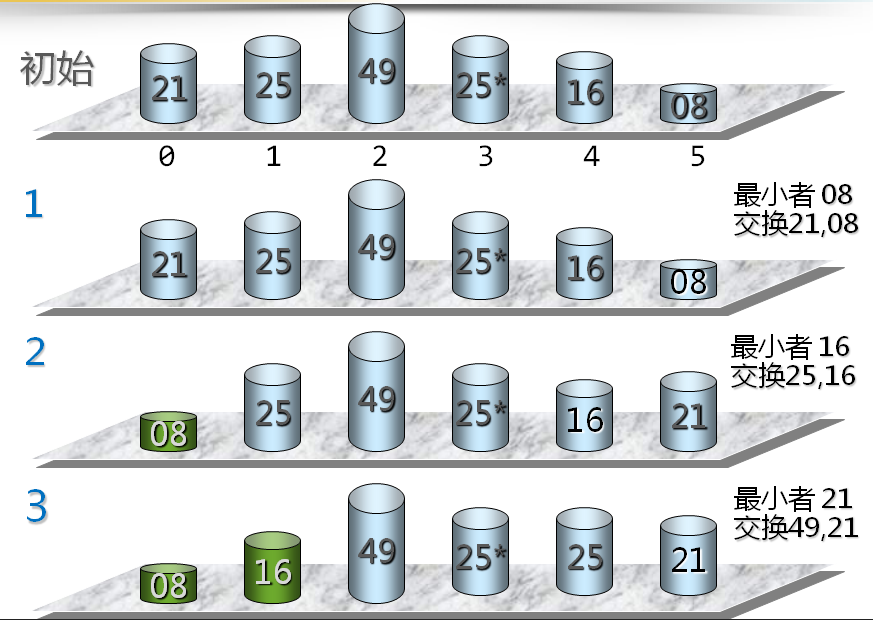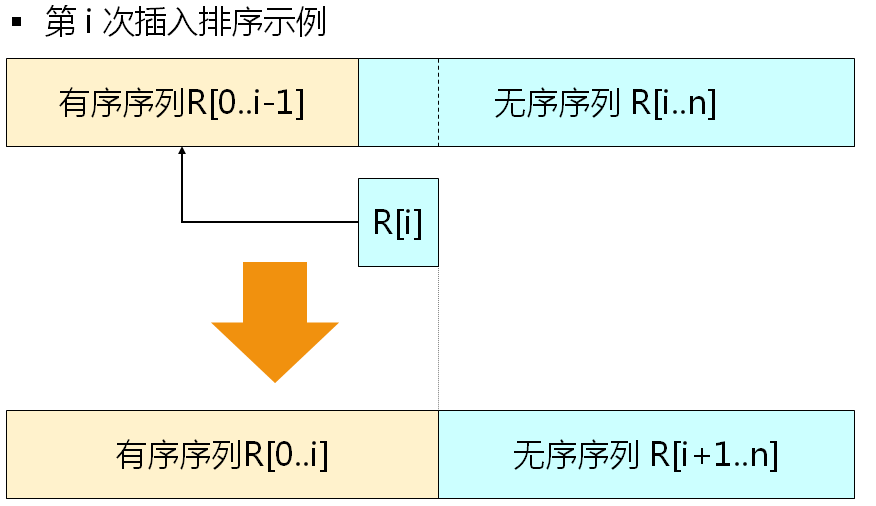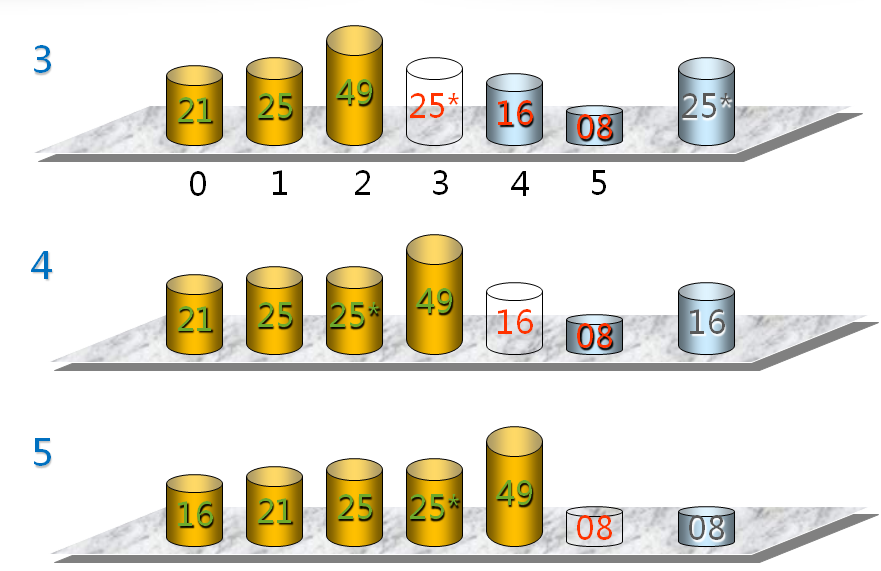原文:https://www.cnblogs.com/wanmeishenghuo/p/9683786.html 参考狄泰软件相关教程




添加选择排序:
#ifndef SORT_H
#define SORT_H
#include "Object.h"
namespace DTLib
{
class Sort : public Object
{
private:
Sort();
Sort(const Sort&);
Sort& operator = (const Sort&);
template <typename T>
static void Swap(T& a, T& b)
{
T c(a);
a = b;
b = c;
}
public:
template < typename T >
static void Select(T array[], int len)
{
for(int i = 0; i < len; i++)
{
int min = i;
for(int j = i + 1; j < len; j++)
{
if( array[min] > array[j] )
{
min = j;
}
}
if( min != i)
{
Swap(array[i], array[min]);
}
}
}
};
}
#endif // SORT_H
测试程序如下:
#include <iostream>
#include <cstring>
#include "DTString.h"
#include "LinkList.h"
#include "Object.h"
#include "Sort.h"
using namespace std;
using namespace DTLib;
int main()
{
int array[] = {3, 1, 2, 5, 4};
Sort::Select(array, 5);
for(int i=0; i < 5; i++)
{
cout << array[i] << endl;
}
return 0;
}
结果如下:

给Select添加一个参数,支持从小到大排序和从大到小排序:
#ifndef SORT_H
#define SORT_H
#include "Object.h"
namespace DTLib
{
class Sort : public Object
{
private:
Sort();
Sort(const Sort&);
Sort& operator = (const Sort&);
template <typename T>
static void Swap(T& a, T& b)
{
T c(a);
a = b;
b = c;
}
public:
template < typename T >
static void Select(T array[], int len, bool min2max=true)
{
for(int i = 0; i < len; i++)
{
int min = i;
for(int j = i + 1; j < len; j++)
{
if( min2max ? (array[min] > array[j]) : (array[min] < array[j]) )
{
min = j;
}
}
if( min != i)
{
Swap(array[i], array[min]);
}
}
}
};
}
#endif // SORT_H
注意:选择排序是不稳定的。





添加插入排序操作:
#ifndef SORT_H
#define SORT_H
#include "Object.h"
namespace DTLib
{
class Sort : public Object
{
private:
Sort();
Sort(const Sort&);
Sort& operator = (const Sort&);
template <typename T>
static void Swap(T& a, T& b)
{
T c(a);
a = b;
b = c;
}
public:
template < typename T >
static void Select(T array[], int len, bool min2max=true)
{
for(int i = 0; i < len; i++)
{
int min = i;
for(int j = i + 1; j < len; j++)
{
if( min2max ? (array[min] > array[j]) : (array[min] < array[j]) )
{
min = j;
}
}
if( min != i)
{
Swap(array[i], array[min]);
}
}
}
template < typename T >
static void Insert(T array[], int len, bool min2max=true)
{
for(int i=1; i < len; i++) //从1开始,第0个元素没有必要插入操作
{
int k = i;
T e = array[i];
for(int j=i-1; (j>=0) && (min2max ? (array[j] > e) : (array[j] < e)); j--)
{
array[j+1] = array[j];
k = j;
}
if( k != i ) //赋值比“比较操作耗时”
{
array[k] = e;
}
}
}
};
}
#endif // SORT_H
注意:插入排序是稳定的排序
选择排序的时间复杂度是O(n*n)
插入排序的时间复杂度是O(n*n)
小结:
